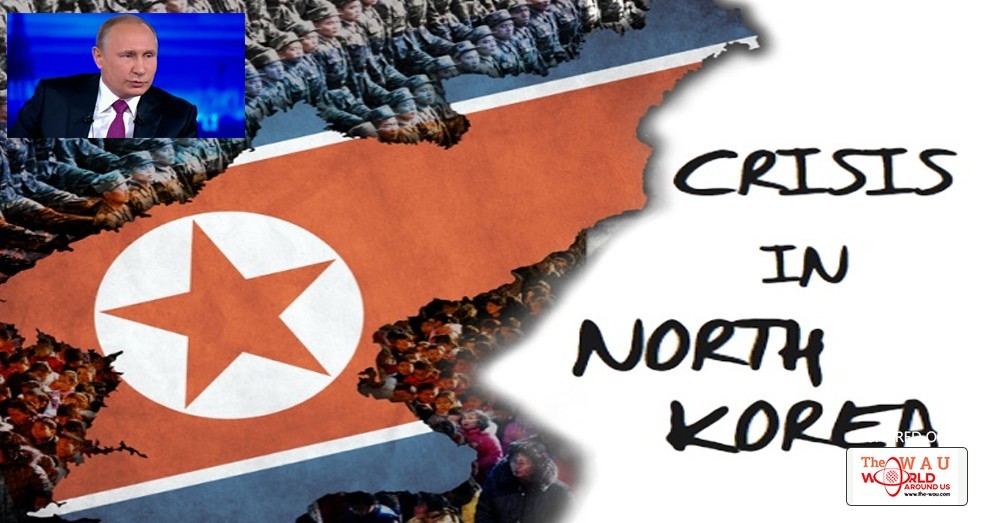Russian President Vladimir Putin has weighed into the North Korea crisis, warning the US and others against going down a "dead-end road" and calling for talks to resolve the issue.
"Russia believes that the policy of putting pressure on Pyongyang to stop its nuclear missile program is misguided and futile," Putin said in an article released Thursday by the Kremlin, ahead of the BRICS summit in Xiamen, China.
"The region's problems should only be settled through a direct dialogue of all the parties concerned without any preconditions. Provocations, pressure and militarist and insulting rhetoric are a dead-end road," Putin said.
His comments were published hours after the US and South Korea conducted a mock bombing raid on the Korean Peninsula that was denounced by Pyongyang as a "rash act."
Russia was a participant in the six-party talks, which took place in the mid-2000s in an attempt to get North Korea to abandon its then burgeoning nuclear program.
In his published comments, the Russian president said the situation on the Korean Peninsula was "balancing on the brink of a large-scale conflict."
'Rash act'
On Thursday, four US F-35B fighter jets joined two US B-1B bombers and four South Korean F-15 fighter jets in a joint US-South Korean drill, which simulated a surgical strike on key enemy facilities, over the Pilsung Range in the eastern province of Gangwon, South Korea.
In a statement, US Pacific Command said the flyover was a "direct response" to North Korea's launch Tuesday of an intermediate range ballistic missile over Japan.
Pyongyang denounced the drill Thursday, with state news agency KCNA described as "wild military acts."
"The US imperialists and the South Korean puppet forces do not hide their bellicose nature, claiming that the exercises are to 'counter' (North Korea's) ballistic rocket launches and nuclear weapons development," KCNA said.
The agency added that the US and South Korea were "taken aback" by North Korea's recent missile launch, the country's "first military operation in the Pacific."
That launch sparked some panic in Japan, with air sirens sounding in the northern part of the country and residents there receiving a text message urging them to seek shelter in a strong structure or a basement.
Show of force
In the wake of Tuesday's missile launch, Pyongyang said it would stage future military operations directed at the American territory of Guam.
Guam has long been a focal point of North Korea's anger against the US and is often a target of North Korean saber-rattling.
It was threatened specifically by North Korea in 2013 and again in August 2017, following a fiery exchange of threats and insults between Trump and the North Korean regime.
The small island in the Western Pacific is the closest US territory to North Korea and hosts two important US military installations.
One is Andersen Air Force Base, from which the US B-1B bombers flew Thursday. They were joined by F-35 fighters flying from a US Marines base in Iwakuni, Japan.
The F-35 stealth fighters would be a key part of any US pre-emptive strike on North Korea designed to neutralize the country's defensive and counterstrike capabilities, Jerry Hendrix, a retired Navy captain and senior fellow at the Center for a New American Security, told CNN earlier this month.
Corey Wallace, a security analyst at Freie University in Berlin, told CNN this week the use of the F-35s out of Japan showed the United States had various options for potentially striking North Korea.
"(Washington has) platforms from Guam and Japan linking up and operating together over South Korea with South Korean assets, with all of the governments supporting this," he said.
Share This Post















